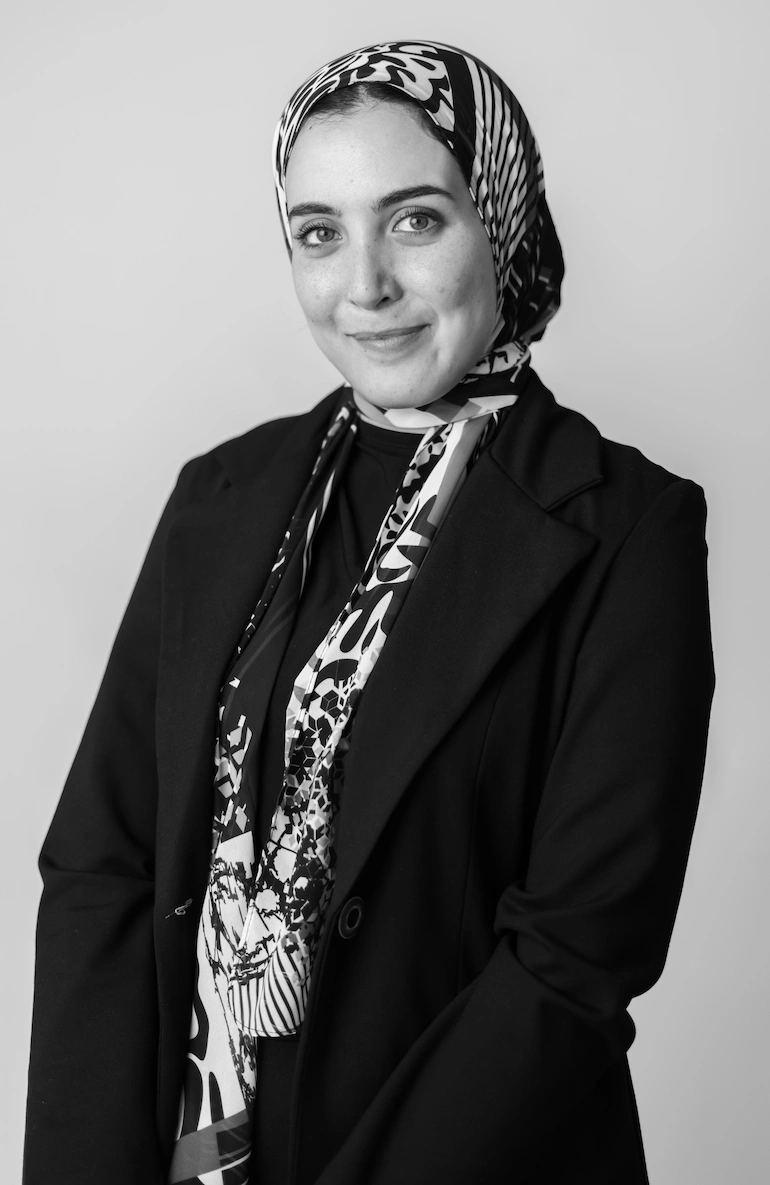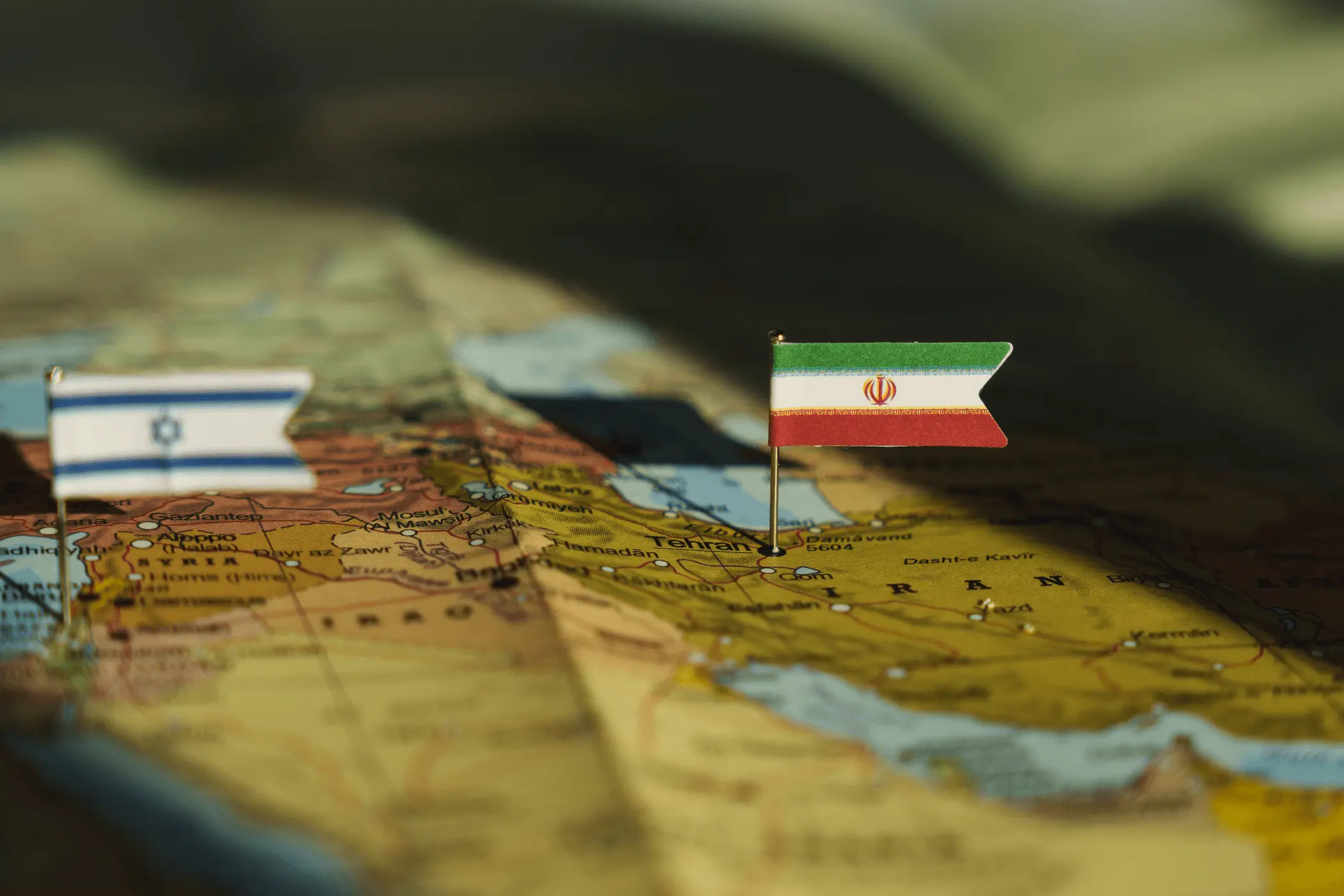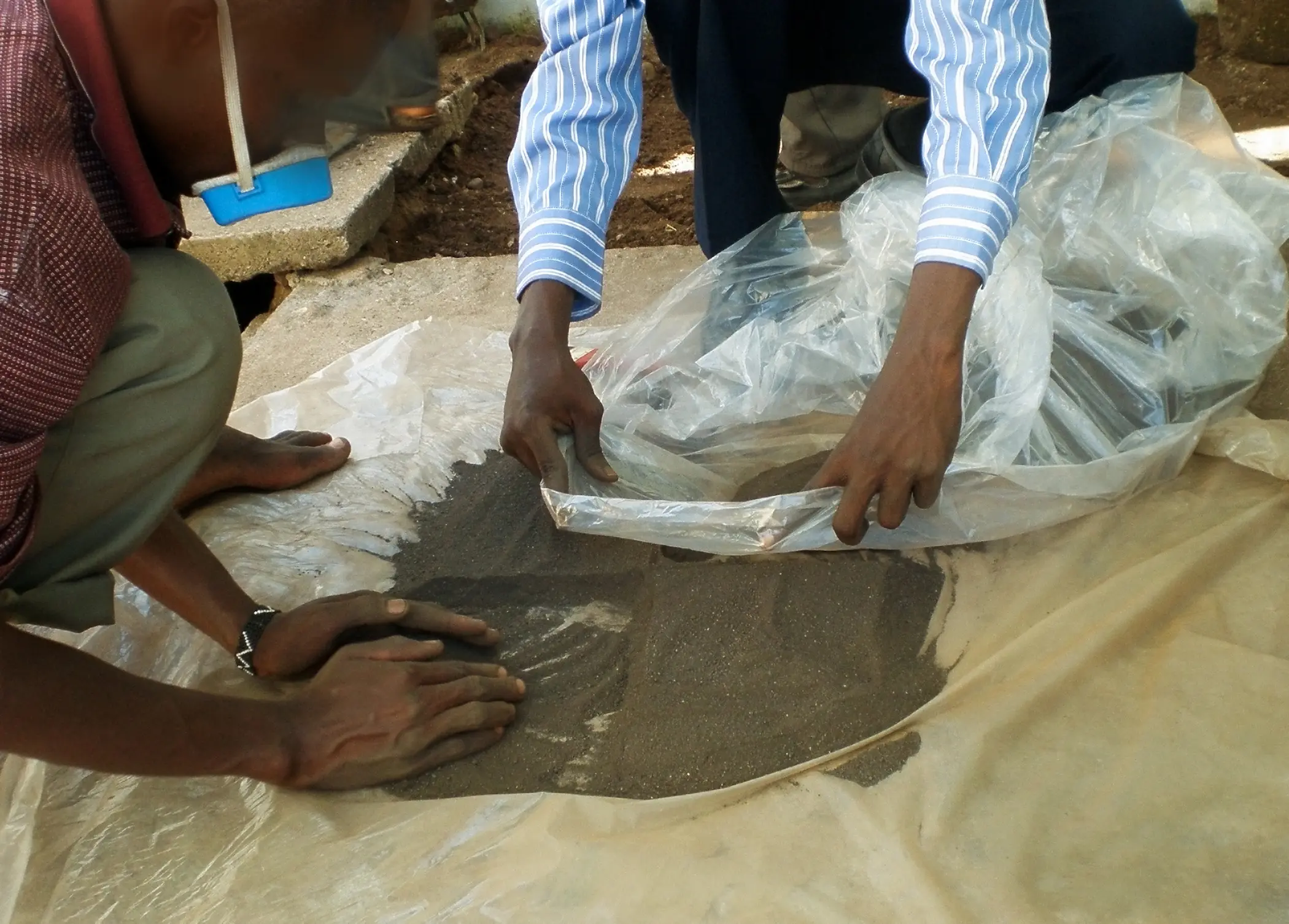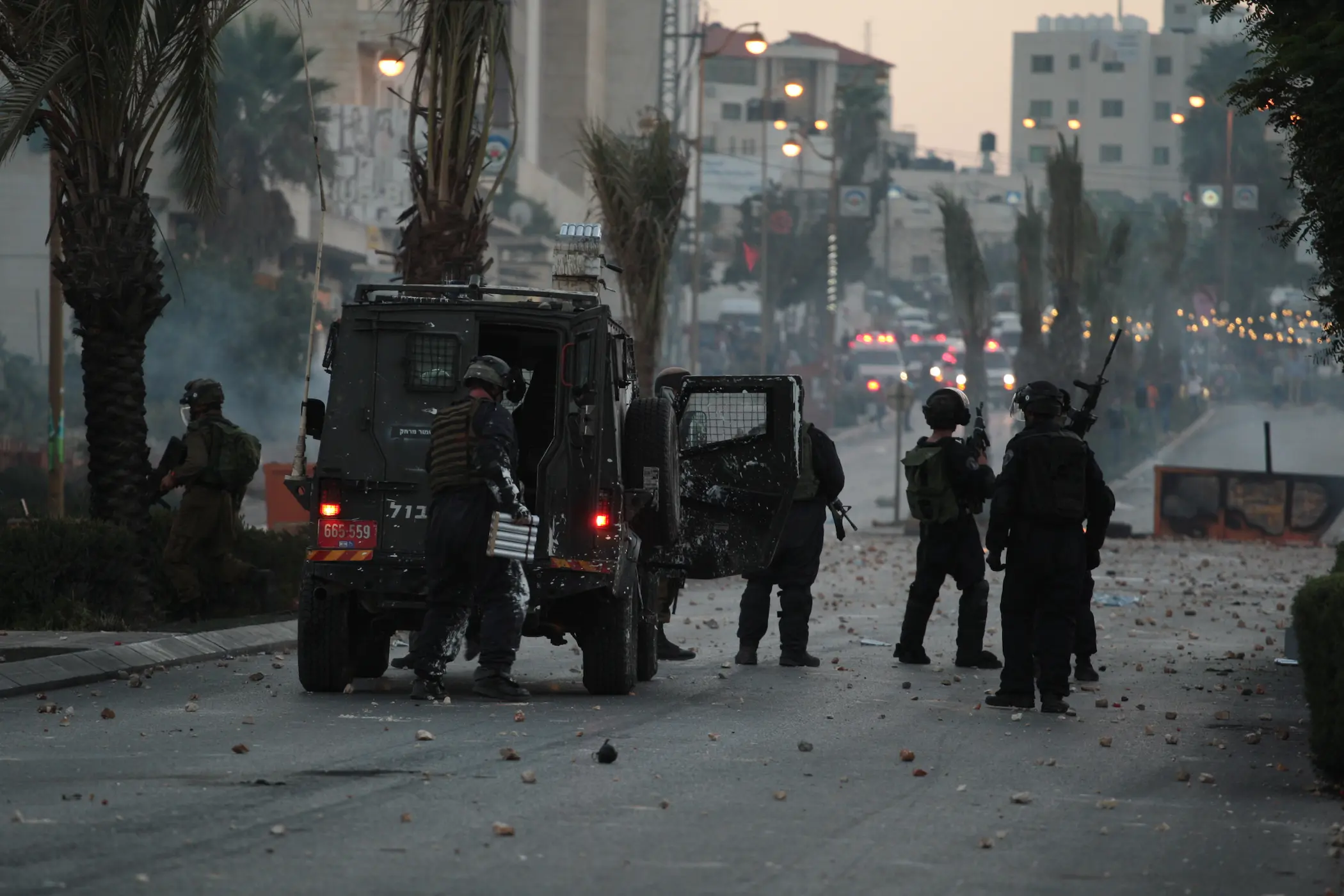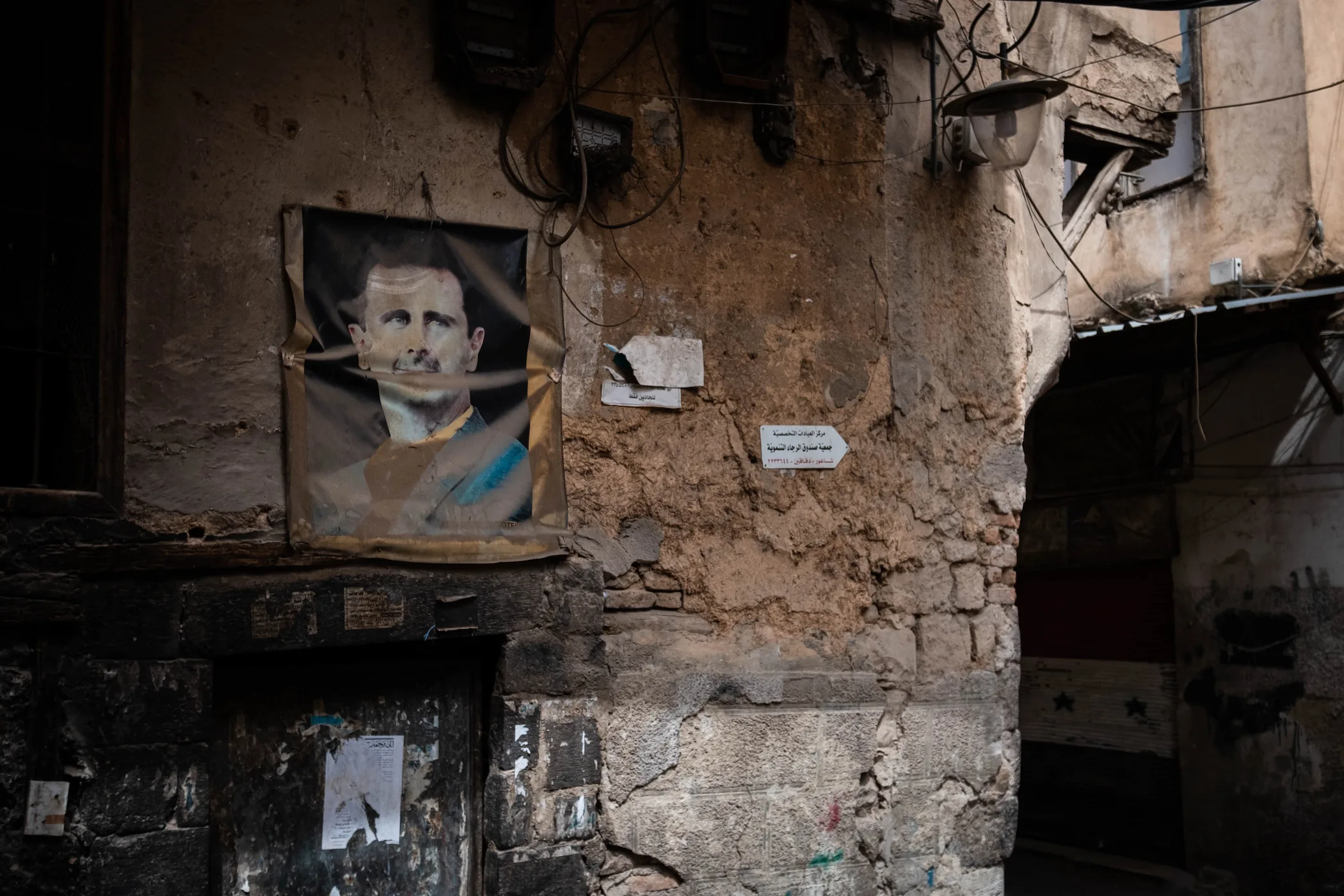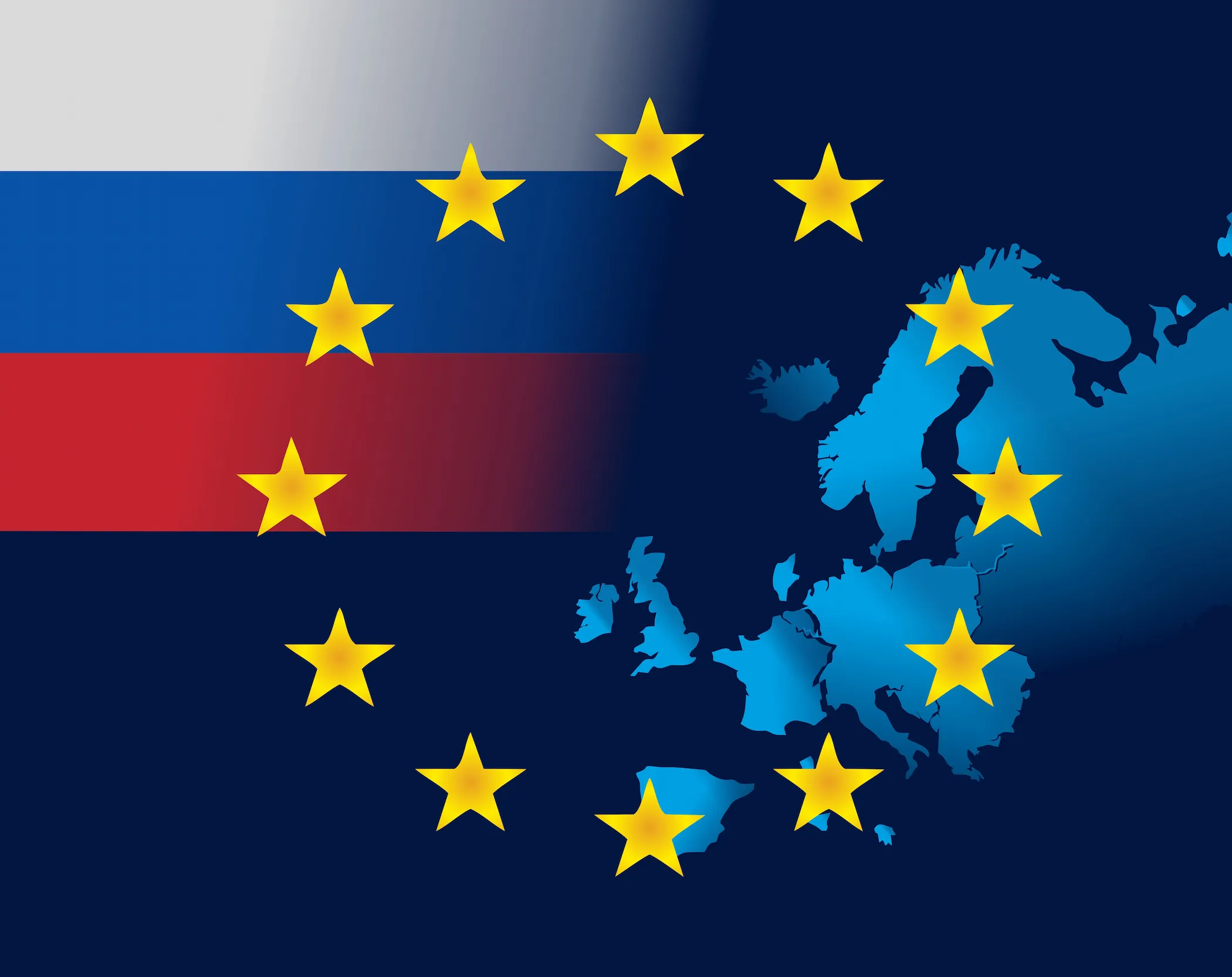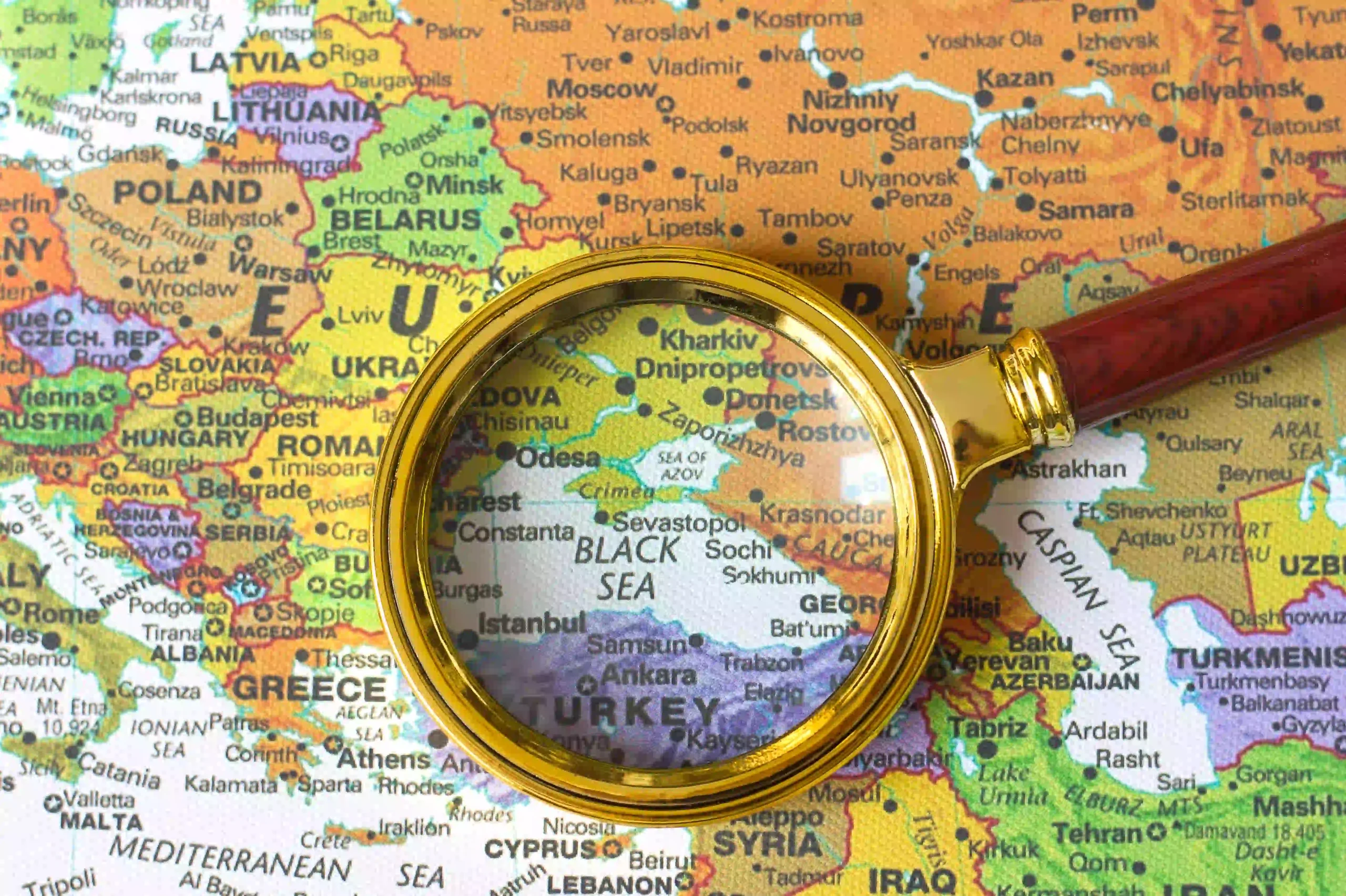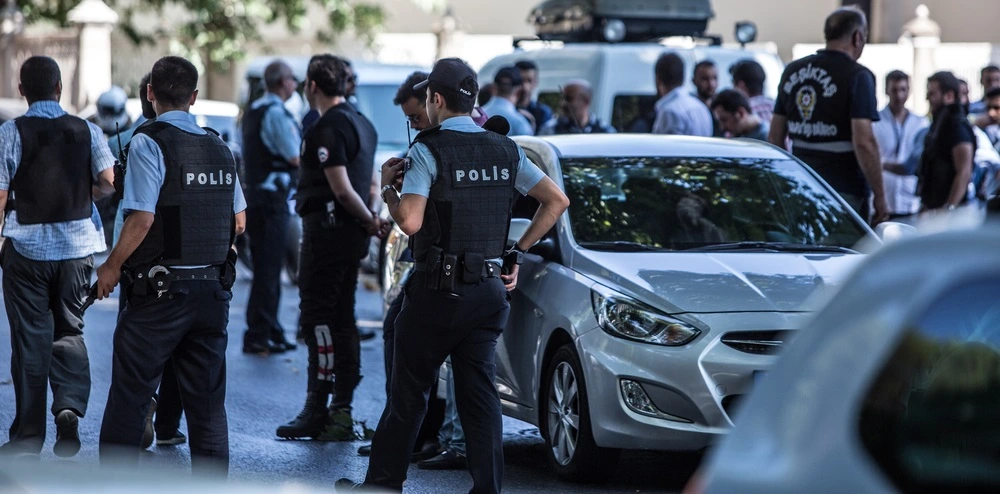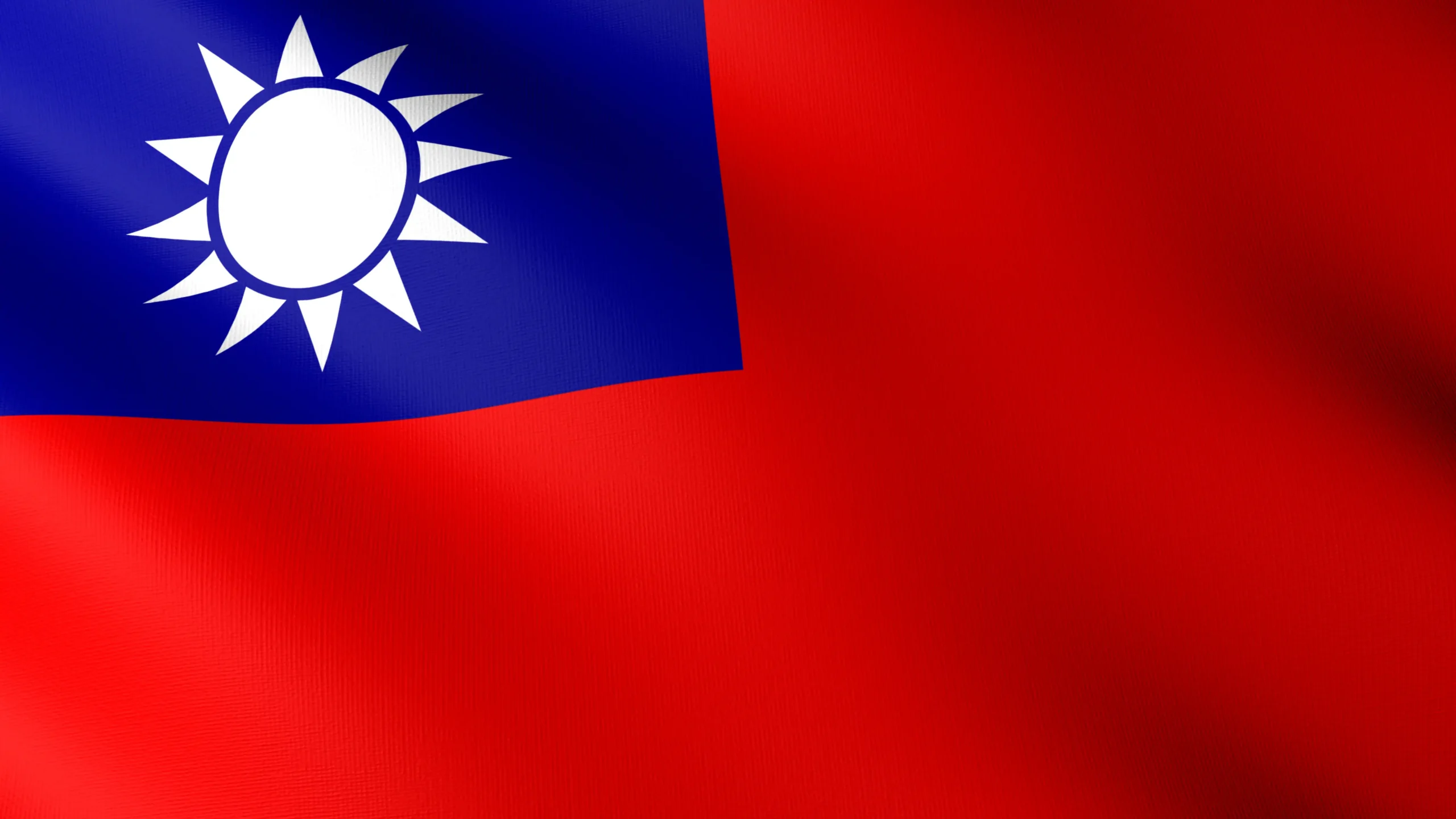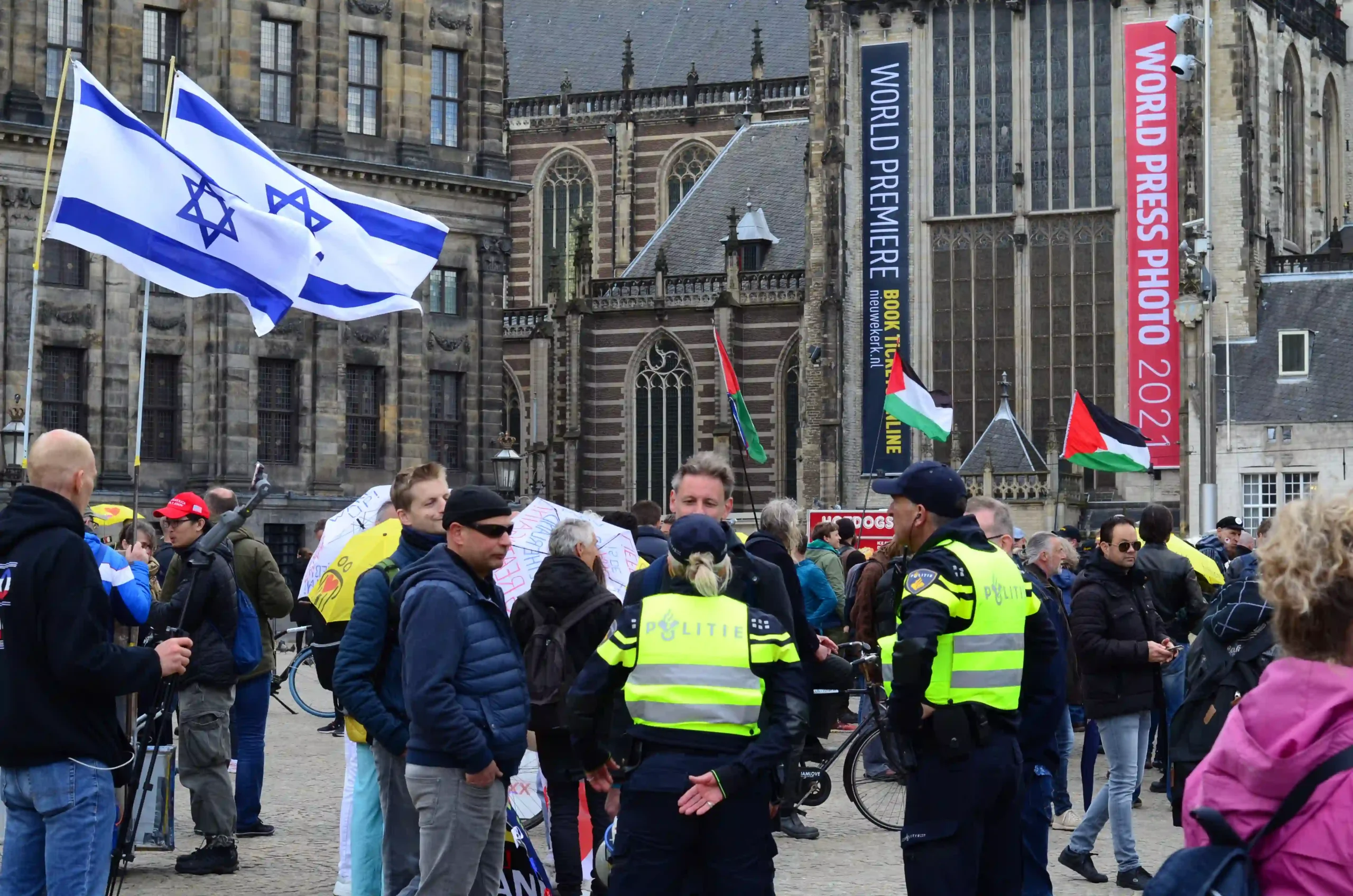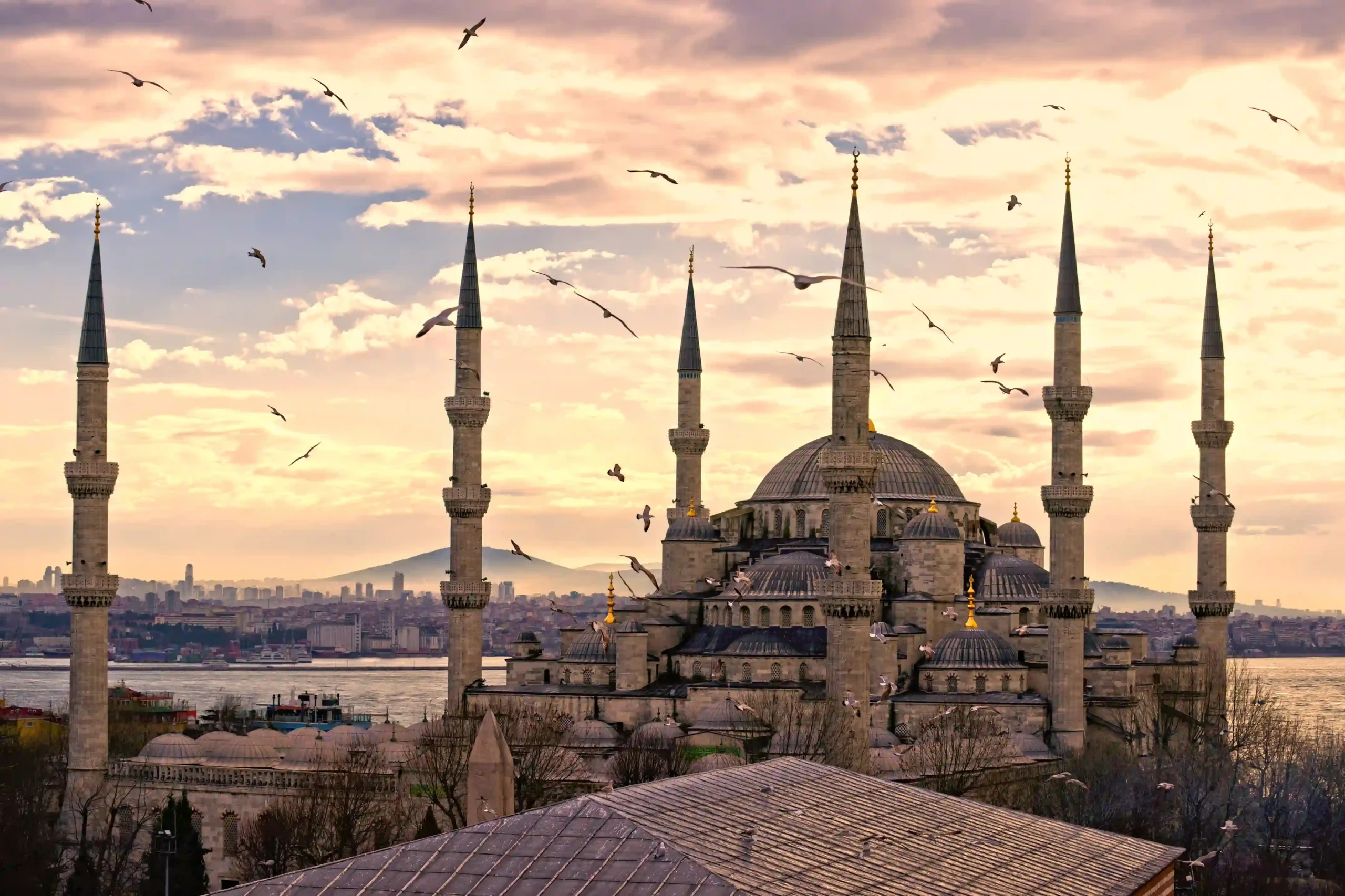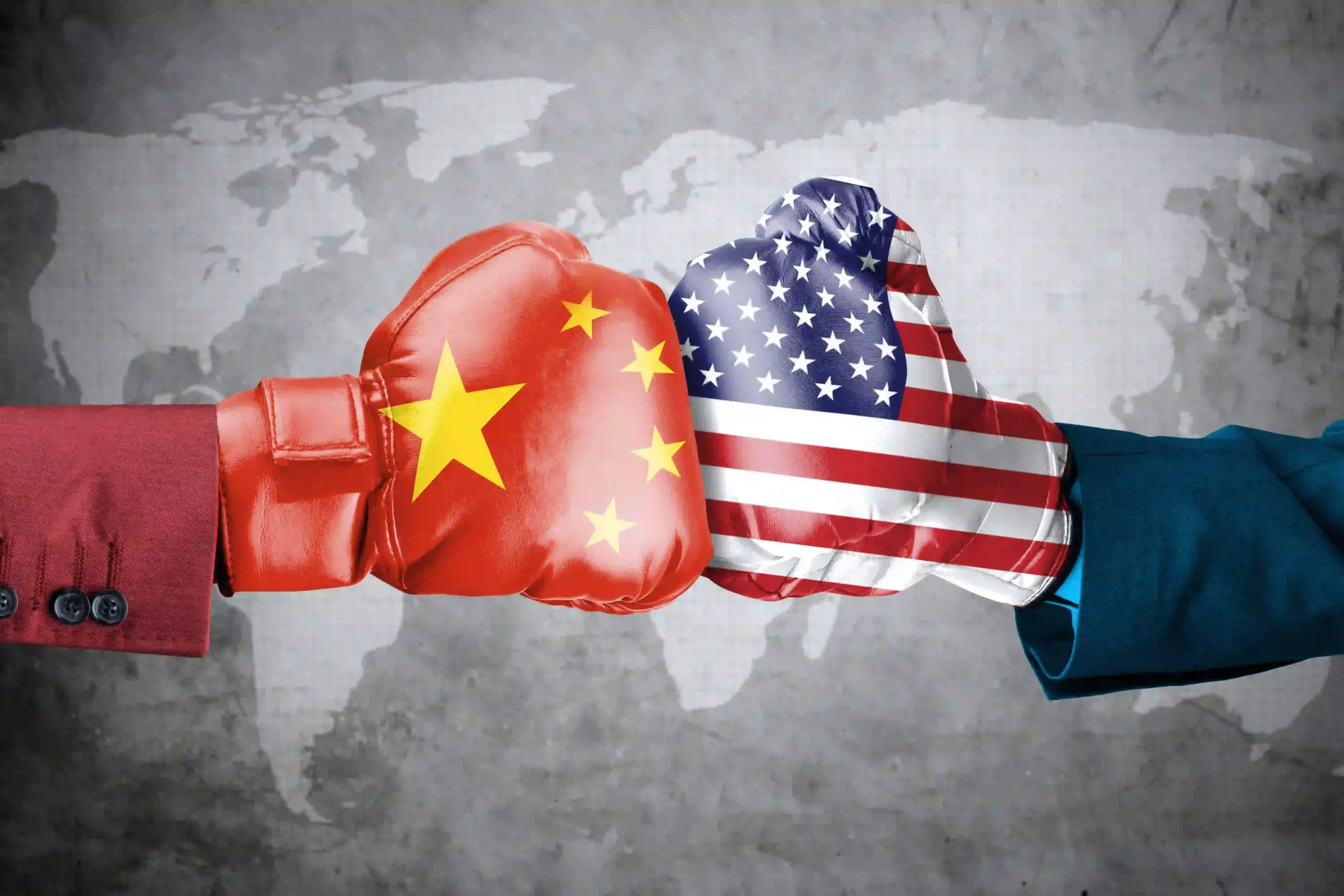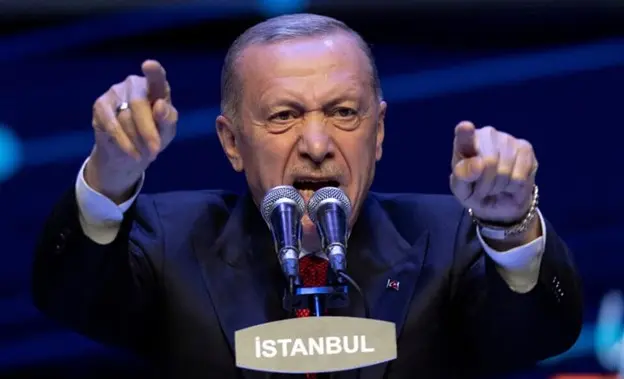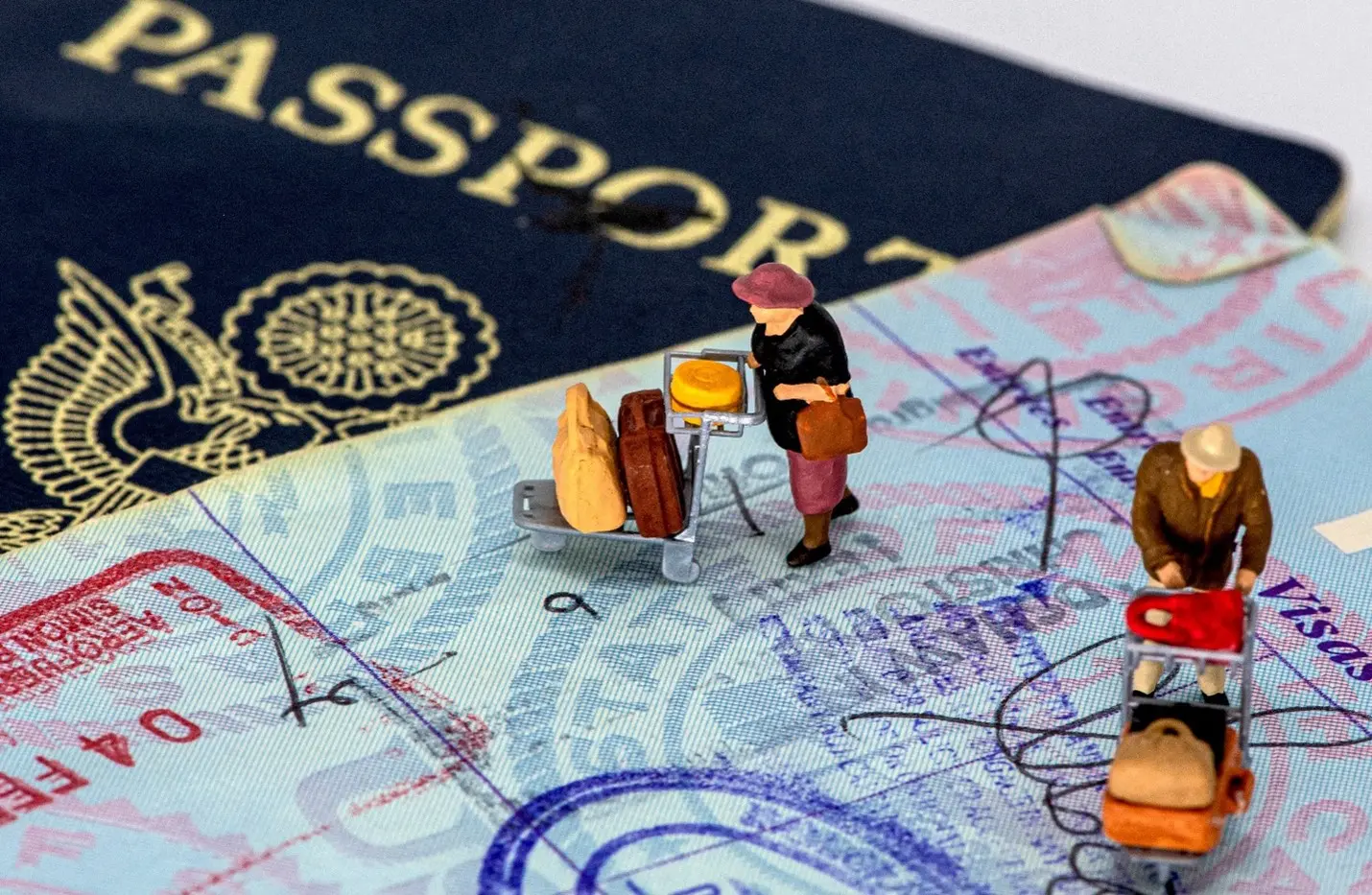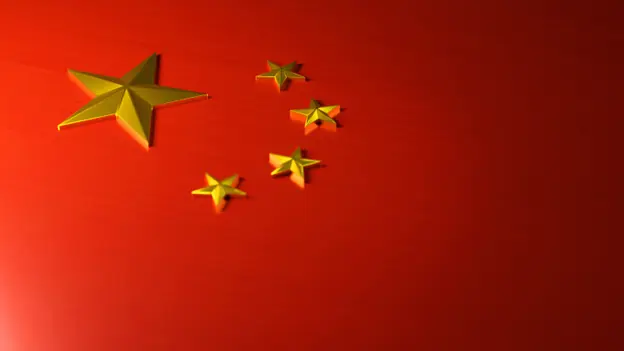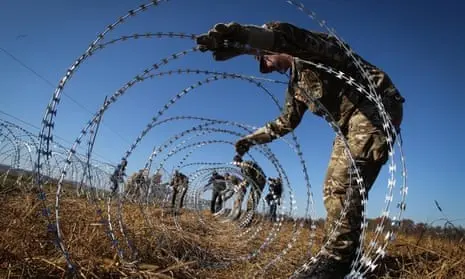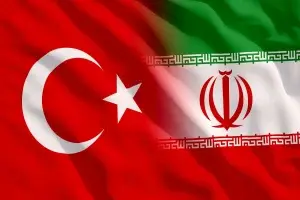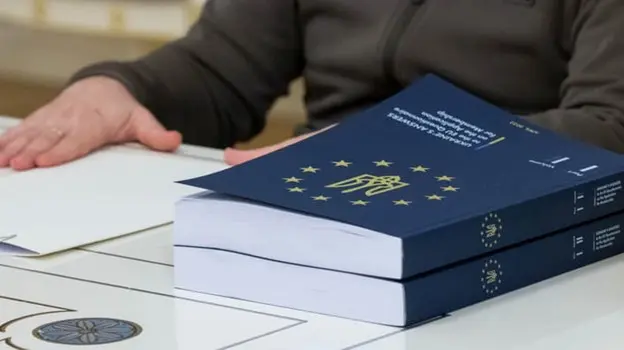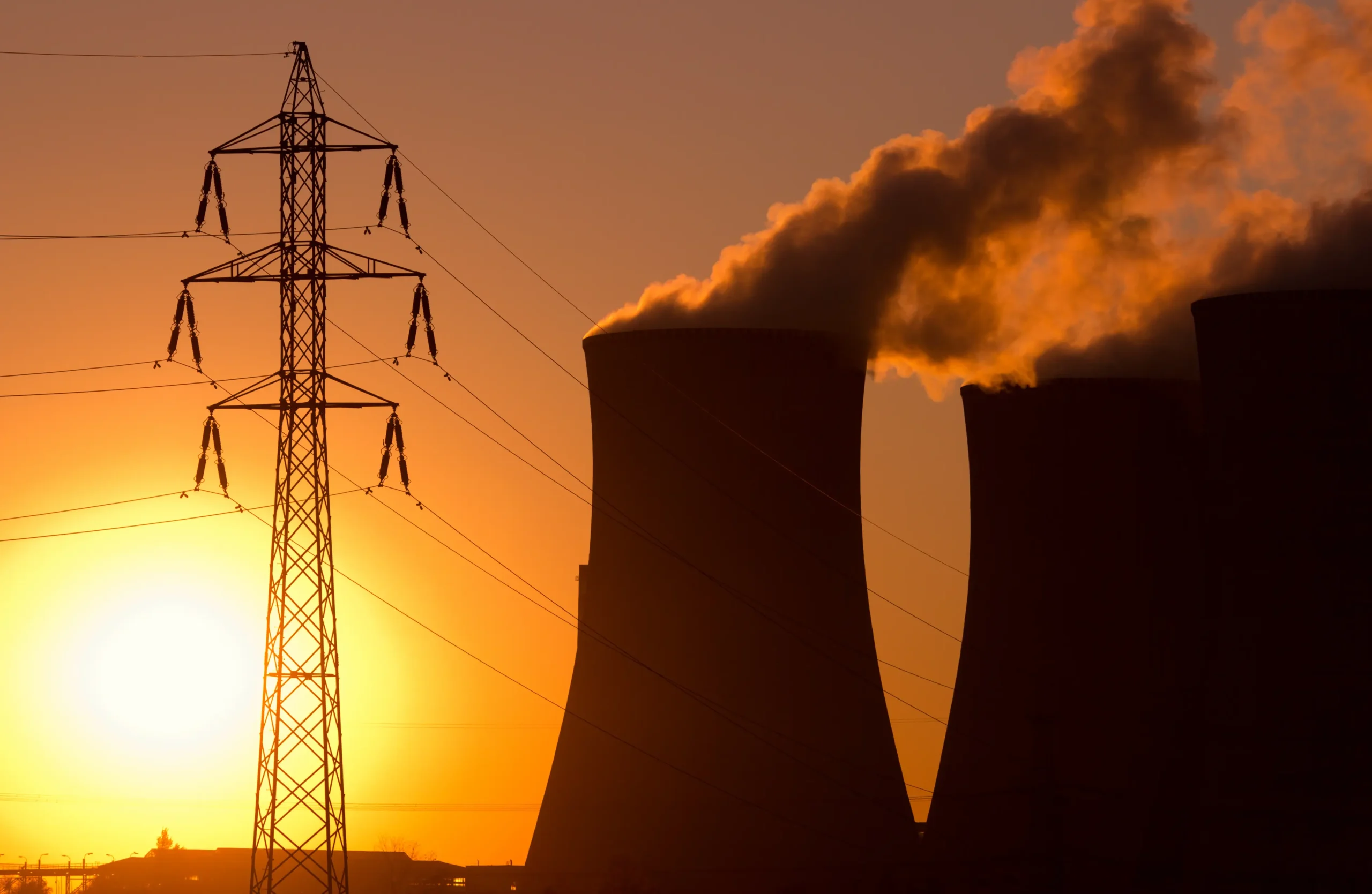Habiba is a Senior Political Researcher in the Early Warning Programme at Al-Habtoor Research Centre. She obtained an M.A. at the University of Glasgow, the Autonomous University of Madrid, and the National and Kapodistrian University of Athens. Before joining HRC, she attended the Instituto de Ciencias Sociais de Lisboa's Research winter school. She interned at the ENA Institute for Alternative Policies in Athens, where she worked as a research assistant. Habiba’s research interests include democratization, civil-military relations, secessionist movements, and Euro-Mediterranean politics.
contact information
Latest By Habiba Diaaeldin
22 Jun 2025
Iran and Israel: The War That Will Redraw the Middle East
The war between Iran and Israel is arguably a war of survival for the regime in Iran. Attacking Iran seemed to be a logical step for Israel after almost destroying its arms of proxies in the region. the regime, which stands on three pillars, namely, its conventional missile arsenal, its extensive network of regional proxy forces, and its nuclear program, is facing a war of attrition that might eventually end the very survival of the regime. The fall of the regime in Iran goes beyond mere regime change, rather, it is considered a state collapse.
The collapse of the Iranian state would have dire consequences for the region. However, the possibility of the regime surviving remains a significant scenario. While the fall of Iran is widely regarded as a regional catastrophe, its continued survival, particularly with Tehran asserting itself as a regional superpower, could prove even more destabilizing for Israel and its allies. Both outcomes carry profound regional and global implications, signalling a transformation in Middle Eastern geopolitics. The pressing question is not whether change is coming, but rather: what will the new Middle East look like?
6 May 2025
DRC Minerals and a Potential U.S.–EU Confrontation
In a few months, the Trump administration is expected to push Rwanda and the Democratic Republic of Congo (DRC) to sign a peace deal which is supposed to be followed by a bilateral minerals’ agreement between the U.S. and the DRC. The agreement puts some parties in an advantageous position while leaves others with a less fortunate fate. The U.S. is supposed to gain economically and politically by this agreement especially when it comes to its rivalry with China. While the DRC is expected to gain in the short-term leveraging the “conflict minerals” narrative, the long-term consequences are not necessarily desirable. The EU is left with the undesirable situation. The bloc will either adjust its policies toward the DRC’s minerals or remain in a situation where a clash with the Trump administration is possible. While a direct military confrontation between the two powers remains improbable, a proxy war in which M23 rebels are a main actor is possible. Additionally, with minerals gaining increasing geoeconomic relevance, Trump has eyed several countries including Ukraine, and the DRC, who could be his next target?
22 Apr 2025
Truce and Tactic: The Political Calculus of Ceasefires
In today’s volatile political landscape, ceasefires are becoming increasingly relevant. While they are not designed to bring an immediate end to conflicts, they aim to provide a temporary respite in which opposing parties can engage in dialogue and work toward a resolution. Ideally, ceasefires function as transitional phases within ongoing wars, offering the opportunity for negotiation and compromise. However, as a political tool, ceasefires often fail to meet their objectives. Their effectiveness is not simply determined by military action, but by the political will and complex considerations of the parties involved. Ceasefires are heavily influenced by the intentions of the signatories, as not all parties are genuinely committed to ending hostilities. This raises important questions about how we define the success or failure of a ceasefire. If the stated goal is to end the war, yet political agendas remain hidden, the resumption of conflict may not necessarily mean that the ceasefire has failed—it could indicate that one party's objectives were unfulfilled, while the other may have achieved its goals.
Additionally, each ceasefire agreement is unique, shaped by the specific political dynamics at play, including the roles of mediators, guarantees, and the structure of the agreement itself. The Israel-Hamas ceasefire is a striking example of this complexity. While it may appear to be a failure from a broader, collective perspective, it could represent a significant political and military opportunity for Israeli Prime Minister Benjamin Netanyahu. The influence of external actors, such as U.S. President Donald Trump, must also be considered as part of the equation. Ultimately, the fragile truce between Hamas and Israel raises a critical question: Is it merely a political process, or does it reflect a deeper, more strategic calculation that extends beyond the immediate cessation of hostilities?
23 Mar 2025
Lebanon: A Pattern of Escalation in the Middle East
The latest wave of escalations in Lebanon is not a coincidence but part of a broader pattern of escalation. The U.S. strikes on the Houthis in Yemen were quickly followed by the collapse of the ceasefire in Gaza, and now, as anticipated, a rocket fire from Lebanon has provided Israel with the justification to escalate further. This strongly suggests that Israel is laying the groundwork for a wider regional conflict.
This escalation is not only shaped by international dynamics but also by internal Israeli politics. Netanyahu's government, under pressure from far-right factions, is actively pushing for expanded military action. The reappointment of Itamar Ben-Gvir as police minister is not an isolated decision but a signal that Israel is preparing for prolonged conflict. With these developments unfolding in quick succession, it is becoming clear that unless a major concession is reached, the region is heading toward another cycle of war.
18 Feb 2025
The New Frontier: West Bank is the New Gaza
In recent months, the West Bank has witnessed rising violence. The timing in which the West Bank is witnessing escalation is not a coincidence, it is connected to the ceasefire in Gaza. While right-wing elements refuse the ceasefire deal, it is generally argued that Israeli Prime Minister Benjamin Netanyahu has to appease those elements in his coalition. Netanyahu who is believed to have been pressured to accept the deal, does not find any alternative to satisfy right wingers in his coalition other than shifting the war to the West Bank. While this understanding is not entirely false, it is suggested that recent events in the West Bank are part of Israel’s expansionist plan aiming at imposing Israeli sovereignty on the territory. Using legal and political manoeuvres, Israel aims to turn the West Bank into another Gaza which results in broader regional implications.
11 Feb 2025
What Is Beyond the USAID Controversy?
Recent decisions by U.S. President Donald Trump cutting aid to foreign countries and dismantling the U.S. Agency for International Development (USAID) have sparked global backlash. While the impact of cutting aid is substantial, the broader significance of this move cannot be overlooked. It reflects a deeper shift in the Trump administration’s foreign policy strategy. But what are the implications for the U.S. and its adversaries?
20 Jan 2025
Is the Russia-Ukraine War Nearing Its End?
President-elect Donald Trump has pledged to bring an end to the Russia-Ukraine war, though he has yet to specify how. A negotiated settlement appears to be the only viable path forward, as a decisive military victory for either side seems unlikely. Western nations, particularly those in Europe, are struggling with internal challenges, leaving them in a weak position with limited leverage at the negotiating table. Meanwhile, Russia also finds itself in an unenviable situation, creating a potential opening for Trump to encourage both parties toward a resolution. However, for any agreement to lead to lasting peace, security guarantees for Ukraine must be a central component. These guarantees are likely to be the key trade-off for any concessions that Europe would likely offer.
23 Dec 2024
The Fall of Al-Assad: Beyond the Defeat of a Regime
More than a decade after the outbreak of the Syrian Civil War, the unexpected fall of the Assad regime shocked many commentators and world leaders who believed that President Bashar Al-Assad had firmly consolidated his power. This development demonstrated that despite enduring years of civil war, Syria continues to hold strategic relevance at both regional and international levels. The conflict has provided an opportunity for regional and global powers to establish a presence in the country, amplifying the impact of the regime's collapse far beyond Syria's borders. Notably, the fallout has produced clear winners, with Turkey and Israel at the forefront, and losers, including Russia and Iran. Meanwhile, some European countries have discreetly benefited from the situation without openly acknowledging their gains.
8 Dec 2024
Are We Waving Goodbye to Macron?
France's political crisis is moving toward uncharted territory. Since June, President Emmanuel Macron has thrown the nation into turmoil by calling for snap elections. This decision set off a cascade of crises, culminating in the resignation of Michel Barnier, the shortest-serving prime minister in France’s modern history. The fallout isn’t confined to France alone; its ripple effects are being felt across the European continent. Considered the culprit of all this, the question looms: will Macron soon be ousted?
10 Oct 2024
Wars and Refugees: To Israel and Beyond
The Israeli military has reportedly launched a recruitment campaign offering asylum seekers residency in exchange for their service in the Israeli Defence Forces (IDF). The Israeli government already struggling with a shortage in manpower needed for its war on multiple fronts including in Gaza and Lebanon. While this policy is not totally pioneered by Israelis, it faces serious legal and humanitarian repercussions. Additionally, it adds a layer of uncertainty to the fate of refugees and asylum seekers in Europe who might face the same fate as asylum seekers in Israel given the ongoing Russia-Ukraine War and problems with conscription.
27 Aug 2024
The European Union’s Troubled Route to Raw Materials
A strategic mineral agreement between the European Union (EU) and Rwanda has sparked controversy. This deal is aimed at securing a supply of essential minerals required for the production of clean technologies, such as solar panels and electric vehicles, by importing these resources from Rwanda to the EU. Months later, the EU signed another agreement with Serbia to import lithium, focusing on sustainable raw materials, battery value chains, and electric vehicles. These agreements are part of the EU's broader raw materials diplomacy, aimed at ensuring the supply of critical raw materials. To date, the EU has formed partnerships with 14 countries to support its transition from fossil fuels to renewable energy and clean technology. While the text-book definition of diplomacy is traditionally understood as a tool for preventing conflict, the EU's approach to raw materials “diplomacy” would create more issues than it should resolve.
15 Aug 2024
Syria-Turkey Normalisation: Are Yesterday’s Enemies Today’s Friends?
Since the eruption of the Syrian Civil War in 2011, several countries have cut diplomatic relations with Syria turning Damascus into a pariah state. 13 years later, the shifting regional geopolitical landscape appears to be ushering in a new reality. Today, both regional and global powers are moving toward rapprochement with Syrian President Bashar Al-Assad’s regime. In a significant U-turn, Turkish President Recep Tayyip Erdogan, once a staunch opponent of Al-Assad, is now seeking normalization with Syria. While, Turkey is not alone in this effort, Syria's potential reintegration could have far-reaching implications.
8 Aug 2024
What is Happening in Britain?
On July 29, 2024, three little girls were stabbed to death during a festival in Southport in which 10 others were injured. The attacker, a 17-year-old male, was arrested. Given his age, the British police did not reveal his name which gave way for rumours to take place. Within hours, some far-right social media users claimed that the attacker was a Muslim migrant which pushed authorities to reveal the latter’s identity falsifying rumours regarding his origins and background.
Despite falsification, the day after the Southport incident, violent protesters gathered in London outside Downing Street for some minor fights with police. In the days after that, violent far-right demonstrations took place in other towns and cities across the country. Violent protests, described by British Prime Minister Keir Starmer as “far-right thuggery” targeted mainly Muslims and migrant communities. For instance, hotels housing asylum seekers waiting for their asylum applications’ processing were targeted by rioters. In Rotherham, rioters broke into the hotel, tried to set it on fire and blocked the exits while asylum seekers were inside, another hotel in Tamworth was also set alight.
Some high-profile figures are believed to be behind igniting the riots. Tommy Robinson who is a far-right activist is believed to be helping fuel England's worst riots in over a decade. While rioters have been chanting his name over the past week, Robinson has been commenting on the protests from abroad through social media posts. "As disorder spreads... don't say I didn't warn you," said Robinson on X to his 900,000 followers, the second night of rioting. Nigel Farage, leader of Reform U.K., a far-right populist party, has distanced himself from current riots and vocally condemned them. However, Farage was criticized for spreading “conspiracy theories” about the attacker’s identity. He has also previously drawn attention to and criticized hotels that house migrants which are being now targeted by violent protesters.
It seems that far-right activists, who have recently lost impact on the electoral level, are finding in social media an alternative channel to exert some influence. WhatsApp and Telegram have been used to organize gatherings and flyers organizing protests have been shared on Facebook.
28 Jul 2024
Are the Paris Olympics Too Political?
The Paris 2024 Olympics edition is undoubtedly unique. While the Olympics have always been political, this time they are taking place amid significant uncertainty and instability in the host country, as well as on a global stage already heated by two ongoing wars which makes it a particularly distinctive Olympics. This highly anticipated event is expected to be leveraged by President Emmanuel Macron as he seeks to restore some of his lost prestige following his party's defeat in the snap elections he called for. Nevertheless, France is likely to encounter numerous internal and external challenges leaving political events overshadowing athletic performances.
22 Jul 2024
The Resurgence of Assassination as A Political Tool
Political assassinations have been a constant occurrence in world politics. Assassination as a political tool is, however, not exclusive to states nor state leaders; anyone who has fired a gun against a political figure claims the title of an assassin. Additionally, involvement in politics in any capacity can leave you vulnerable to such acts of retaliation. While gunmen and fanatics still impose a threat, states themselves are considered to be leading the pack. During the Cold War, the business of assassination was largely monopolized by superpowers. The United States and the Soviet Union directed operations targeting high-profile figures such as Cuba’s Fidel Castro, Chile’s Salvador Allende, and Yugoslavia’s Josip Broz Tito. Some "hits" gained more fame than others such as the assassination of dissident Bolshevik leader Leon Trotsky in Mexico City using an ice pick by Stalin’s secret police.
Russia and the United States, once the dominant global poles, continue to hold on to their old love for eliminating those they deem adversaries. The Kremlin has a long tradition, stretching back a century, of eliminating political dissidents both at home and abroad to send chilling messages to other opponents. In February 2024, a Russian pilot who had defected to Ukraine was assassinated in Spain. He was shot six times and then run over by a car, with Russian-made bullet casings left at the scene—a crude warning to others. Recently, U.S. intelligence uncovered a Russian plot to assassinate the chief executive of a powerful German arms manufacturer producing artillery shells and military vehicles for Ukraine. The United States has also continued its practice of carrying out high-profile assassinations with its most recent target being Qassem Soleimani, who was killed in Baghdad in a strike that showed little regard for international law.
States vary in their levels of expertise in assassination, with Israel often considered the maestro of this practice. Assassination has been a foundational principle of the Israeli state. Since its establishment in 1948, Israel has targeted Nazi leaders, Palestinians, Arabs, and scientists serving its enemies, such as German scientists working on the then Egyptian President Gamal Abdel Nasser’s advanced weapons program. Currently, the pool of targets has expanded, with Iranians becoming significant targets of Israeli operations. One of the latest operations against Iranians involved the assassination of Hassan Sayyad Khodaei. Known only to intelligence personnel as a key figure at the tactical level in the Quds Force, Khodaei's primary focus was on attempting (mostly unsuccessfully) to attack Jewish and Israeli targets abroad.
Nevertheless, the pool of nations engaged in assassination attempts appears to be expanding with new entrants. A notable incident occurred in Canada last June, where Sikh separatist Hardeep Singh Nijjar was shot 34 times. Additionally, in January of the same year, British Sikhs were warned by police about increased risks to their lives. This incident marks India’s grand entrance into the stage of those countries using assassination as a tool for advancing both international and domestic agendas. It highlights how political assassinations have resurfaced as a widespread tactic, no longer monopolized by a handful of states.
3 Jul 2024
Foreign Policy Challenges for 10 Downing Street’s Next Resident
While most electoral debates focus on domestic politics, foreign policy remains a crucial aspect. It seems, however, that Prime Minister Rishi Sunak was aware of this when he appointed David Cameron as Secretary of State for Foreign Affairs. Regardless of who wins, most likely the Labour Party, there will definitely be changes to the current situation. Issues ranging from relations with European neighbours to migration and defence are ready for the upcoming prime minister.
27 Jun 2024
France’s Parliamentary Election: What is Going on in Paris?
In a surprising move, and after the far-right National Rally (RN) party dominated in the European elections in France, French President Emmanuel Macron announced the dissolving of parliament and called for snap elections. The move is seen as very risky, with many believing that it will further embolden the far-right whose chances of winning a parliamentary absolute majority exceeds that of Macron’s coalition. Nevertheless, Macron’s decision is not without some strategic planning. Nonetheless, whether the French president succeeds in his plan or not, watching French politics for the upcoming three years will be definitely be interesting.
13 Jun 2024
Security and Stability in the Mediterranean in Athens, Greece 2024
In May 2024, The Institute of International Economic Relations (IDOS) organised a workshop on Security and Stability in the Mediterranean. The workshop focused on critical issues of security and stability in the Mediterranean, which continue to dominate regional and international agendas. Topics included the conflict between Israel and Hamas, tensions in the Greater Middle East, recent developments in Turkey and Iran, ongoing violence in Syria, Iraq, and Libya, as well as the migration and refugee crises. Additionally, the role of global powers such as the United States, Russia, and China was examined. The Mediterranean region, remains a crucial area for the future of the European Union's relationship with Mediterranean and Middle Eastern countries. The workshop's objective was to discuss and analyse ongoing political conflicts in the Euro-Mediterranean region and explore possible ways to achieve peace and stability.
In this workshop, AHRC researcher Habiba Diaaeldin presented a paper on European policies, the rise of the far right, and their impact on migration, geopolitics, and the humanitarian situation in the Mediterranean. The paper aimed to evaluate European migration policies, specifically the New Pact on Migration and Asylum, using "policy success" criteria developed for this purpose. These criteria include assessments based on values, economic cost, objective attainment, and political cost.
Throughout the three-day workshop, participants engaged in discussions on various topics related to the workshop’s main theme.
11 Jun 2024
Migrants Not Welcome: The UK’s Safety of Rwanda Bill
This article was originally published on Ahram Online on June 11, 2024.
In April 2022, then-Prime Minister Boris Johnson announced a plan to deport asylum seekers to Rwanda under the newly enacted "Safety of Rwanda Bill." This bill generated significant controversy and was described as incompatible with the U.K.'s legal obligations. Both the British Supreme Court and the European Court of Human Rights ruled that the bill violated legal obligations and was incompatible with international conventions to which the U.K. is a signatory. In June 2022, the first flight carrying asylum seekers from the U.K. to Rwanda was cancelled minutes before take-off after the European Court of Human Rights issued last-minute commands to stop it. Two years later, with a new Prime Minister in office and despite international legal pressure, Parliament has finally passed the bill. However, the controversy has not ended. The high economic costs and concerns over human rights continue to render the Safety of Rwanda Bill contentious and problematic.
27 May 2024
Migration: An Everlasting Variable in European Politics?
This June, citizens of the European Union will head to the ballot boxes for the highly anticipated parliamentary elections. Migration has always been a significant issue for both voters and candidates. However, several commentators, citing opinion polls, argue that migration may no longer be a top concern, overshadowed by issues such as economic turmoil, COVID-19, and climate change. Despite this, further analysis suggests that migration continues to be an important issue. While respondents might not explicitly mention migration when asked about their concerns, it remains significant, as evidenced by the attitudes of candidates and their emphasis on the topic. This underscores the continuing importance of migration in the upcoming elections and its significance to the results.
15 May 2024
The Far-Right Surge in Europe and its Ripple Effects on Migration in the Mediterranean
Several indicators point out to the rise of far-right wing within the European bloc including polls for the upcoming European elections and the migration deal which was passed by the French parliament last December. Far right sentiments are reflected on many issues especially Migration which holds second place in the list of most pressing issues for European voters. The New European Migration Pact, which exempts Ukrainians from the new measures, reflects European leanings towards the right adding more restrictions on Migrants, refugees and Asylum seekers especially those arriving from the Middle East and Africa. The far-right leanings do not only hold significance for the European Union (EU) but they will definitely impact neighboring countries especially countries of North Africa who act as a transit for refugees and asylum seekers aiming at reaching European shores. Migrants, refugees and asylum seekers will face catastrophic humanitarian situation due the Pact’s measures such as the screening procedure which will lead to diminished safeguards and a risk of mass detention at the borders, including for children, in countries of first arrival, the Crisis and Force Majeure Regulation which regulates what happens if there is a “crisis” at the EU’s external border. European countries themselves will be put in an unenviable position due to transit countries’ levering their geopolitical positions. Using a multi-faceted criterion, the paper argues that the new pact is just a “rebranding” of ongoing European migration policies which are found to be unsuccessful. The paper uses the EU-Turkey migration deal showcasing shortcomings of European migration policies. Findings suggest that, among other losses, far-right measures taken by EU states tend to embolden transit countries vis-a-vis European states who will lose on the political as well as the economic side. Politically, they will have to make concessions in face of transit states while economically they will have to pay huge amounts of aid for the sake of borders’ externalization and keeping migrants away.
8 May 2024
Has Moscow’s Control Over Europe Become Uncontrollable?
It appears that Russian influence has been steadily spreading across Europe, stretching from the eastern regions of the continent to its central and western borders. Moscow's reach isn't confined solely to nations within its sphere of influence; it also affects broader European foreign policy and the trajectory of the bloc's future.
10 Mar 2024
Macron’s War Rhetoric and his Desperate Quest for Prestige
“Nothing should be ruled out” said French President Emmanuel Macron when asked about possibilities of sending troops to Ukraine. By speaking about going to war, Macron may have aimed to dispel a long-standing joke about the French always surrendering. However, both French and NATO leaders have publicly rejected the idea of sending European or alliance troops to Ukraine. Prominent figures such as U.S. President Joseph Biden, German Chancellor Olaf Scholz, Polish Prime Minister Donald Tusk, NATO Secretary-General Jens Stoltenberg, and others have asserted that such action is not on the table. The widespread domestic and regional opposition implies that even if Macron was genuinely considering sending troops to Ukraine, he would not receive the necessary support for such a radical decision.
22 Feb 2024
Turkey: Reaping the Rewards of a Turbulent Black Sea
Since the 16th century, the Black Sea has always been a lake of tensions. Contrary to the Wars of The Holy League, in which the Ottoman Empire witnessed its first territorial loss, the contemporary situation signals Turkish gains in the region. The ongoing war in Ukraine has revived the Montreux Convention which gives Ankara the higher hand in the Black Sea and led other NATO members to appreciate the indispensable Turkish role. Recently, developments in the Black Sea ranging from decaying Russian power to Western apprehension are offering Ankara some Turkish delights.
29 Jan 2024
Decoding the Istanbul Church Attack
This article was originally published on Ahram Online on Jan. 31, 2024.
The attack on the Santa Maria church in Istanbul is the first attack on Turkey claimed by IS since 2017. According to the Islamic State's statement, the attack was a response to one of its leaders instructing for the attack on "Jews and Christians". However, the end goal of the attack remains unclear and that raises questions about the legitimacy of IS’s claim. Over the last decade, the world has witnessed a sharp rise in terrorist attacks often claimed by terrorist groups striving to establish their relevance and influence over international politics. In fact, between 1998 and 2016, an estimated 16% of attacks were falsely claimed.
14 Jan 2024
Taiwan’s Elections: What Does it Bring for the World?
As of the 13th of Jan. 2024, Taiwan has elected a new president, Lai Ching-te, a member of the Democratic Progressive Party (DPP) nationalist party. Despite Taiwan being a relatively small country, who is only recognized as an independent state by 13 countries, its elections will have global ramifications. Chinese claims over the strait of Taiwan are nothing new, however, having a new president who has been dubbed as a “trouble maker” by Xi Jinping could act as the initial spark of a new war in 2024.
30 Nov 2023
The West Polarised: Impact of the War in Gaza
Ramifications of the Israeli-Hamas War have not been confined within Gaza or the Middle East’s borders. Polarisation over the Palestinian cause has reached a new character especially in the Western world where such a trend has never been as deep. Cracks within governments and societies can be traced to a volatility of values, exposure to social media, and demographic changes. With such an unprecedented divide over Western governments tolerating Israeli impunity in Gaza, the West is faced with a moral dilemma which might cost it it’s claimed “moral superiority”.
12 Oct 2023
Shifting Seas: Changing Directions of Animosity in Turkish Society
While hosting approximately four million Syrian refugees, Ankara no longer maintains its previous reputation as a warm and welcoming host. A series of events have indicated a growing trend that can be described as "Anti-Arabism," while simultaneously, the historical animosity towards Jews is waning. It is suggested that the former trend may be feeding into the latter. Due to a substantial influx of migrants and a challenging economic situation, refugees of Arabic descent appear to have become scapegoats, surpassing Jews as the primary target for hate speech and hostility in the country. These two trends might be interconnected, and understanding their underlying factors and the evolution of this phenomenon demands careful consideration.
31 May 2023
Great Power Competition and Rebalancing Acts in the Middle East
Many analysts argue that Washington is losing its position as the only global hegemon with the rise of other Great Powers in the international arena. The relative demise of the American superpower paves the way for the end of an exceptional era of a Uni-Polar system and the rise of either a Bi-Polar or a Multi-Polar one. Arguments usually revolve around the rise of Russia and China as the main rivals to the United States. However, in this analysis, we argue that the Russian side is better to avoid being considered for such a competition for being involved in a hectic war which requires a sweeping victory for Moscow to compensate for heavy economic losses. China, on the other hand, is gaining momentum on the diplomatic and, to a lesser extent, the security front as new territories for Beijing ever to set foot on. Nevertheless, it is also the case that Washington is still maintaining its supremacy in major arms sales. The Middle East proved to be of paramount importance in the competition among great powers. With Beijing, Washington, and even Moscow trying to gain some influence, countries of the region have been shifting their foreign policies to be more independent to maximise benefits from the newly established world order. Accordingly, they are playing the rebalancing game which stipulates balancing powers mainly between the United States and China.
2 May 2023
Nationalism: The Last Card in Erdogan’s Hands
With the date of Turkish elections coming soon, Turkish president and his Justice and Development Party (AKP) are facing one of the most serious challenges since the year they came to power. Namely, inflation exceeded 80% in September 2022 and Turkish Lira plummeted in the face of American Dollar. These economic hardships are leading the prospects of a political change to peak. According to polls, Erdogan is in real trouble with the AKP receiving barely 29.5% of votes. Accordingly, Erdogan and his allies resorted to the Nationalist rhetoric knowing that it is an important card when it comes to attracting Turkish citizens’ votes. Turkish Nationalism is believed to be nurtured by Kurdish uprisings and the belief in the “revival” of the Ottoman empire. Next May, general elections are to be held in the middle of the aforementioned atmosphere which threatens Erdogan's legacy. Using the same nationalist tactic as he used in 2018, will the Turkish President succeed again or it is a burned card not useful anymore?
12 Apr 2023
Migration Diplomacy in Transit Countries: How can Tunisia Leverage its Geopolitical Position?
Migration is becoming an important area of bilateral and multilateral diplomatic relations. Examples include intergovernmental agreements to limit, or encourage migratory flow, the preferential treatment to certain foreign nationals, the creation of temporary labor migration laws, and so on. However, the term migration diplomacy can go beyond agreements between states to include diplomatic tools states use in order to extract benefits from other states. It is linked to how cross-border populations’ flow is linked to states’ diplomatic goals. Accordingly, states can leverage their position in the migratory process. In this regard, states can either be considered a Sending state, a Receiving state “also known as destination countries” or a Transit state. Sending countries are usually under-developed ones from which people tend to migrate from due to a myriad of “push factors” such as social, cultural, economic and even climate change reasons; diplomacy in this case is to be called Emigration diplomacy. Receiving countries are the more developed ones to be targeted as destination for immigrants wishing to find better living condition; hence, Immigration diplomacy. Finally, Transit countries are considered an intermediary solution to those who flee their countries of origin aiming to reach another country. However, for some reasons, mainly geographical ones, they tend to settle in a ‘third state’ for temporarily as a transit for their final destination.
In this analysis, it will be discussed how migration diplomacy can be useful especially for transit states who can always leverage on their geographical positions by obtaining concessions from receiving states who which to stop migratory flows from reaching either their shores or their borders. At the first part, it will be demonstrated how have some transit states benefitted from their position. At the second part, the Tunisian case will be discussed. Tunisia, as a vital corridor for Sub-Saharan emigrants aiming for reaching European borders through the Italian shores, falls under the umbrella of a transit state. Given its current severe economic situation, Tunisia can grab the opportunity and use migration flows as a source of income rather than scapegoating them for the country’s problems.
4 Apr 2023
China: The Upcoming Hegemon
China has been considered as the main threat to the current world order maintained by Western powers. It became clear when the U.S. for the first time identified Beijing as its “number one challenge” and NATO members included the same country in its “strategic concept”. China has long advertised for itself as a trading partner for many countries with no political interests. For years, world leaders have accepted this propaganda created by the Chinese and perceived the Asian giant as only an economic competitor. However, it seems that Beijing has decided to break up with its old strategy of “hiding our capabilities”, known as taoguang yanghui (韬光养晦).
Lately, China has been engaging in diplomatic initiatives such as the peace plan aimed at ending the war in Ukraine as well as brokering the process of normalizing relations between Iran and Saudi Arabia, leading to Western apprehension from rising Chinese diplomatic power as they understand that altruism has no space in politics. Analysts have been trying to identify the new role to be played by Beijing relying on the concepts coined by William T.R. Fox which concludes that China is not a superpower but it is only a regional power for not being able to deploy military forces overseas. Nevertheless, we argue, contesting prevalent IR theories, that in the new world order, economic might could be enough weapons to extract global political influence. In other words, the contemporary definition of a superpower is different from the one coined by Fox.
20 Mar 2023
Securitization of Migration: An Elastic Tool
Securitizing an issue means simply, designating an issue as of an extreme danger to be dealt with urgently. The theory of securitization stipulates that national security policies are not given but are formulated by policy makers mainly through their uttered words. Accordingly, narratives given by policy makers frame issues as either a security threat, a mere challenge or even an opportunity. The same issue can be mentioned by the same political leader once as a security threat that the nation should mitigate at some point and an asset at another. Migration is one of those issues which governments either give a securitizing polish or none at all. In this analysis, the argument goes that “national interests” made-up from economic and political conditions are the main factors in deciding the given frame.
7 Mar 2023
Politicization of Disaster: The Effect of the Earthquake on Regional Dynamics
The earthquake which hit the southern Turkish territories in February 2023 proved that natural disasters taking place in the 21st century do not only result in piles of deaths and injuries but also political ramifications take place. When the earthquake hit Turkey, politicians understood that it is an opportunity to capitalize on for achieving delayed political aims. On the domestic level, opposition parties started to accuse the current president and his government with poor crisis management while trying to tilt the playing field in their favor before the general elections scheduled in May. On the international front, issues such as NATO enlargement, bilateral relations with Greece and the delayed F-16 deal have taken the larger space in the discussions which came after the earthquake. Accordingly, the natural disaster proved to be a political tool that should not be missed by contemporary politicians.
26 Feb 2023
Stages of Reform: An Egg-Chicken Dilemma
After the so-called Arab spring, different narratives have come out about the reformation and the rebuilding of the Arab states in the aftermath of changing their political systems. However, different narratives coming from global powers such as the European Union endorse the importance of prioritizing democracy for the process of reformation while on the other hand in-depth observation of the current policies of those states reveals that they are prioritizing Economic and military stability over democracy and here comes the paradox; “what should come first in the process of reforming Arab states”. Importantly, if reform necessitates popular satisfaction in order to be sustainable, would democracy still constitute the goal policy makers, supposedly, should work to achieve?
20 Feb 2023
Türkiye and Iran: A Marriage of Inconvenience
The bilateral relations between Türkiye and Iran have always been one of the most unique in the world of international relations. Although pigmented with a number of clashes over several issues, ad-hoc points of cooperation intervene to stand in the face of building an animosity between the two states. With geopolitical changes taking place recently, it deserves to study whether the “marriage of inconvenience” between the two states will continue or it will at some point be disrupted. In this analysis, both points of contention and cooperation will be discussed showing the shape the relations between the two states have been taking paving the way for understanding the persistence of the current pattern.
18 Jan 2023
Ukraine Ascendance to Europe: The Union’s Gift
June 2022, the European Commission announced granting Ukraine the status of a candidate country to the European Union. Nevertheless, problems concerning Ukraine such as their struggle with their economy and political system, are still on the agenda. Giving the candidacy status to Ukraine has been criticized since Ukraine is still regarded as a weak country and not yet eligible for such a status especially when compared with other European candidates. European accession is granted after an assessment process based on what is known as Copenhagen criteria. European officials have announced that the accession process will be done by the book and merit based. In the same vein, the commission has granted Moldova the same status which is, the same as Ukraine, considered part of Russia’s sphere of influence. Keeping all this in mind, in the light of Russian war in Ukraine, it is a valid question to ask whether Ukraine candidacy is merit based or politicized. Is the fifth enlargement scenario of the accession of incompetent Bulgaria and Romania as a reward for their role in Kosovo war is being repeated with Ukraine? Considering this, the analysis is going to examine why Ukraine was accepted as a candidate. Drawing on European Commission’s reports, it will be discovered which of Copenhagen criteria are fulfilled by Ukraine. Copenhagen Criteria are:
Stability of institutions guaranteeing democracy, the rule of law, human rights and respect for and protection of minorities (Political Criteria)
A functioning market economy and the ability to cope with competitive pressure and market forces within the EU (Economic Criteria)
The ability to take on the obligations of membership, including the capacity to effectively implement the rules, standards and policies that make up the body of EU law (the ‘acquis’), and adherence to the aims of political, economic and monetary union.
22 Dec 2022
Securing the Future Generation: A Road Map for Arab Nuclear Cooperation
Nuclear cooperation attracts international and regional attention, many Arab countries have aspired to produce clean nuclear energy and have either begun or are seeking to join the nuclear energy club. The United Arab Emirates (UAE), The Kingdom of Saudi Arabia (KSA) , Egypt, and Jordan, are the frontrunners in the Middle East and therefore will be the focus of this paper. Nuclear power is an international industry in terms of operation, supply chains, and vendors, as well as nuclear safety, non-proliferation and waste management, therefore, there is an ongoing need for cooperation and collaboration between states. This cooperation can include sharing technical expertise and nuclear technology, establishing agreements that facilitate nuclear exports, agreements on nuclear safety and standards, and collaboration with regulatory frameworks.
The paper employs horizontal or environmental scanning to analyse the current position of nuclear energy in each country and their preparedness for nuclear cooperation, as well as existing models of nuclear cooperation in other regions. Thereafter, the paper explores the different incentives countries may have for engaging in nuclear cooperation, including the potential benefits to be gained. A SWOT analysis is used to structure the environmental scanning, evaluating the strengths, weaknesses, opportunities, and threats within each country with regards to their potential role and contribution to nuclear cooperation in addition to an overall SWOT analysis of the countries as a whole with regards to the prospect of ongoing collaboration.
The paper is divided into three chapters; the first chapter provides an overview of nuclear energy in each of the selected countries, the second chapter examines existing models of nuclear cooperation and analyses the different enabling factors which will later be used to identify opportunities for Arab nuclear collaboration, and the third chapter analyses the various economic, political, and security incentives that would drive countries to seek cooperation or that can be used to advocate for greater collaboration among policymakers.
A cooperation model is produced as a result of this analysis, highlighting key characteristics of the ideal regional partnership. Three scenarios for Arab nuclear cooperation are evaluated to demonstrate what could occur if this proposed cooperation occurs, how it would happen, and the scenarios of no collaboration or limited cooperation.
